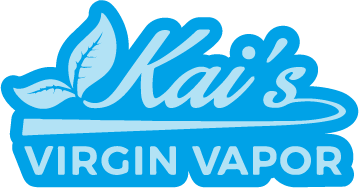Regulatory Update: What's Behind Scott Gottlieb's Resignation from the FDA?
Last week brought some significant developments in electronic cigarette news. As was widely report, the FDA Commissioner, Scott Gottlieb suddenly and unexpectedly resigned on March 5th.

Many wished Gottlieb well, including President Donald Trump.

However, others posting on Gottlieb's Twitter feed were less charitable. The Twitter feed was peppered with comments like, “Good riddance,” and “Glad you’re gone,” and even, “My prayers have been answered!” Many people seemed to share the opinion that Gottlieb represented Big Pharma and Big Tobacco far more than the people of the United States.

Undoubtedly, Gottlieb has not been a friend to vapers and the vaping industry as a whole, pushing for regulations that would gut the industry and limit consumer access to e-liquid, especially flavors other than tobacco and menthol. What Gottlieb’s departure means for us, however, is less obvious.
Gottlieb himself claimed he was resigning to “spend more time with family,” specifically claiming the commute was too taxing (the Gottlieb clan are stationed in Westport, Connecticut). However, there are some reasons to suspect there is more at work here.
Apparently, Gottlieb visited the White House a mere four days before his resignation. FDA spokeswoman, Jennifer Rodriguez confirmed Gottlieb’s White House visit on March 1st, but was tight lipped about any further details.
A report by Axios, however, stated that Gottlieb was there to pitch a proposal that would have required any retailer that sold flavored electronic cigarettes to require potential customers to show I.D. at the door prior to entering the store. The cost and hassle to businesses and customers alike from this plan is obvious. Every gas station, pharmacy and convenience store that carried e-cig products would have to hire and station employees at their entrances to perform this check. It would also prevent underage shoppers from being able to enter these stores. The obvious outcome would be an effective ban on the sale of e-cigs at these establishments and, in fact, that was exactly the plan.
The FDA would face legal challenges if it banned outright the sale of flavored e-cigs by convenience stores. Gottlieb’s plan was a sneaky way to achieve the FDA’s objective without having to come out with an actual ban. A “backdoor” ban, if you will.
Four days after pitching this plan to the White House, Gottlieb tendered his resignation.
Gottlieb himself took pains to suggest there was no correlation between his White House meeting and his subsequent resignation.
“There’s no intrigue here,” he insisted to the New York Times.
However, the development was widely seen as an indication that the FDA may be preparing to soften up on it’s heavy handed stance against the vaping industry.
“We believe his resignation calls into question whether or not the FDA will in fact enforce harsher regulations around youth e-cig usage/access, cig nicotine limits and a cig menthol ban given he was the champion behind these initiatives,” said Bonnie Herzog, managing director for equity research at Wells Fargo Securities. Herzog stated that Wells Fargo Securities saw the move as potentially positive for the tobacco industry as a whole.
Yet more news broke on March 8th, signaling that Herzog’s take on the FDA’s direction might be correct. The FDA announced that it would be delaying requirements for the cigar industry to perform Harmful and Potentially Harmful Constituents (HPHC) testing. HPHC testing is currently required of cigarette companies and is part of the FDA deeming regulations that will soon make it mandatory for e-liquid companies as well. However, there's a lot of wiggle room on the regulatory specifics of exactly how extensive this testing must be.
For example, Philip Morris says that “cigarette smoke contains more than 6,000 chemicals." 1% of those, or sixty chemicals, are linked to smoking-related diseases. However, the FDA has only required the industry to focus on twenty of these in their HPHC testing and was even more lenient with roll-your-own tobacco products which only have to test six. The March 8th announcement signaled a delay in the FDA's ruling on just how many the cigar industry are going to be responsible for and could be the start of a trend toward more lenient regulation for the tobacco industry and the vaping industry by extension.
Time will tell exactly what is going on behind the scenes at the FDA but, for now, there are reasons to hope the climate will become less restrictive and, hopefully, going forward the FDA will take a more balanced approach to regulation than the one being pushed by Mr. Gottleib.
Try our premium organic vape juice today!
Also in Kai's Virgin Vapor Blog
Bundle & Save SALE
We're Back: Now Shipping After Vape Mail Ban
We've managed to survive the vape mail ban against all odds!

